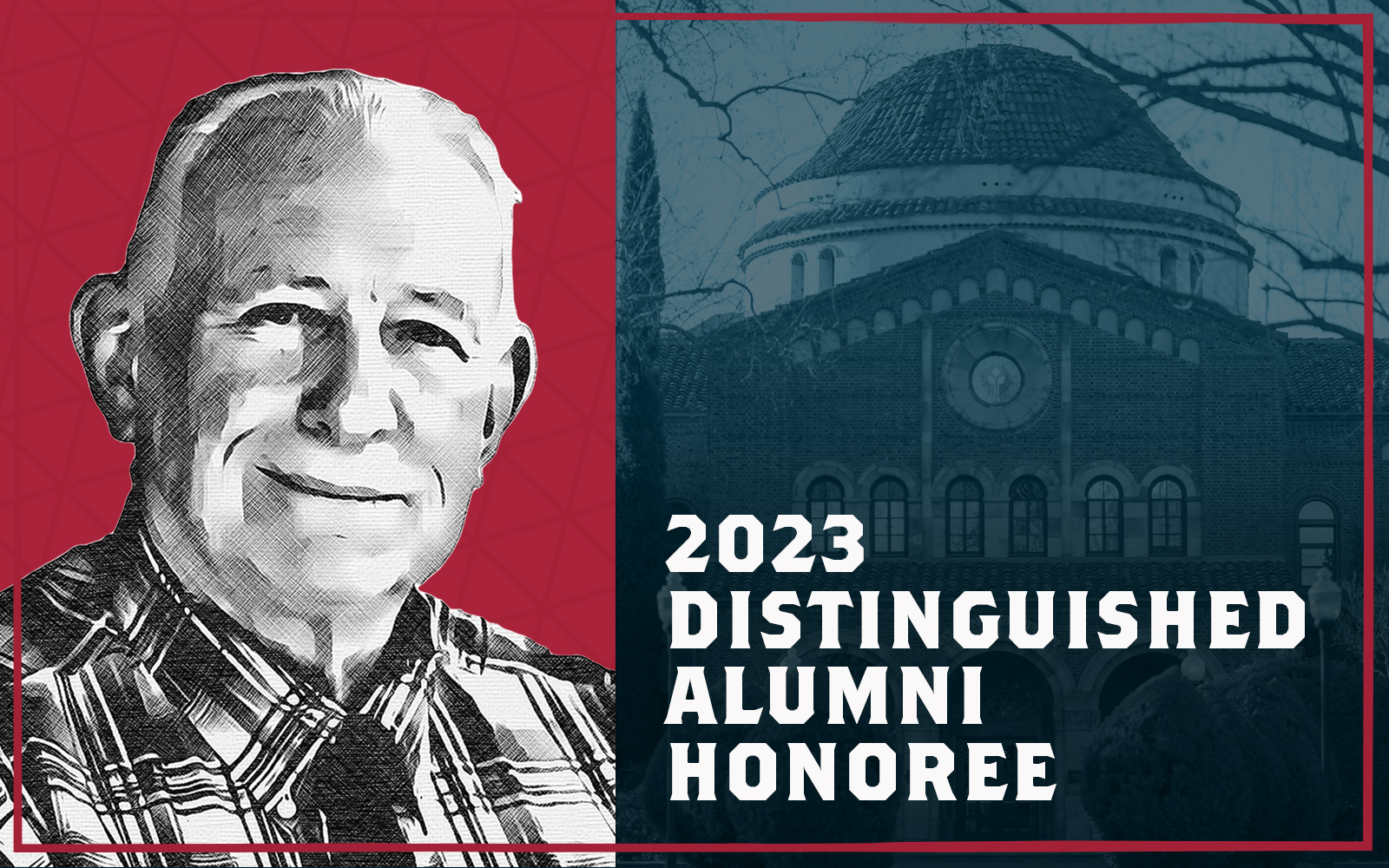Distinguished Alum and Retired Agriculture Educator Roy Beck

Roy Beck spent his childhood working on his family’s Santa Rosa dairy farm, which was good practice for the jobs he took in the beef, dairy, and sheep units at Chico State’s University Farm to pay for his education.
Beck (Agriculture, ’75; MS, Agriculture, ’83) went on to teach agricultural education for 42 years, the final 33 coming at Bret Harte Union High School in Angels Camp. During his career, he lifted numerous students to success, resulting in 288 State Future Farmers of America (FFA) Degree recipients, 24 American FFA Degree recipients, and two California State FFA Officers. He also served multiple terms as a sectional, regional, and state officer for the California Agricultural Teachers’ Association (CATA), culminating in being elected to a CATA state position, where he led the association as a presenter for various events. At Bret Harte, he led successful dairy and poultry FFA teams that competed in shows around the state and national levels. This month, he will be honored as the 2022 Distinguished Alumnus of the College of Agriculture.
Now retired, Beck lives in Murphys with his wife, Anita. He has four children and 11 grandchildren.
You spent your life around farms. What impresses you about the University Farm?
If you are serious about a career in agriculture, the farm is where you need to be. I worked in many units to help pay for my education. For students these days, the farm is there for hands-on experience. It’s where you take what you learned in the classroom and see if it still makes sense in the field.
I appreciate how the University continues to make improvements to the Farm. They are open to adding new programs and new coursework. I’ve been pushing for a poultry unit, which I think is a big opportunity.
What is your advice for today’s students or alumni just starting their careers in ag or agribusiness?
Whether you’re going back to your family farm, focusing on education like I did, or both, I’d tell students to maintain their work ethic. Those who excel in this industry understand it is not a 9–5 job. You’ll be up early, you’ll work weekends and many hot summer days. You must be willing to go out in the field and help students be successful. This is not a career path for people who come up with excuses why they can’t go to work.
Chico State’s College of Agriculture has an extensive regenerative agriculture program. How do these cutting-edge practices make it into mainstream commercial agriculture?
I applaud what the College of Agriculture is doing. Research at the collegiate level is extremely important to determine what techniques are practical and what are not. Students who study practices like no-till farming, organic sprays, and natural microorganisms within the soil will take these ideas back to their family farms or into their first jobs out of college and put them in play. That’s how new practices will make it into real-world farming.
But remember, farming is business, it is people’s livelihood. Everything must practically fit in and contribute to the health of the business. Agriculture teachers need to continue to do what they have always done, which is teach students how to care for our water, land, and other resources. Many family farms go back 100 years. Farmers are interested in using techniques that allow them to pass on their land to future generations. No farmer or rancher is going to choose a short-term gain at the long-term expense of their land.
What does receiving this award from Chico State mean to you?
This is a very special honor. To be recognized favorably by your peers, colleagues, as well as the college that provided me with my unbelievable career humbles me beyond belief!


